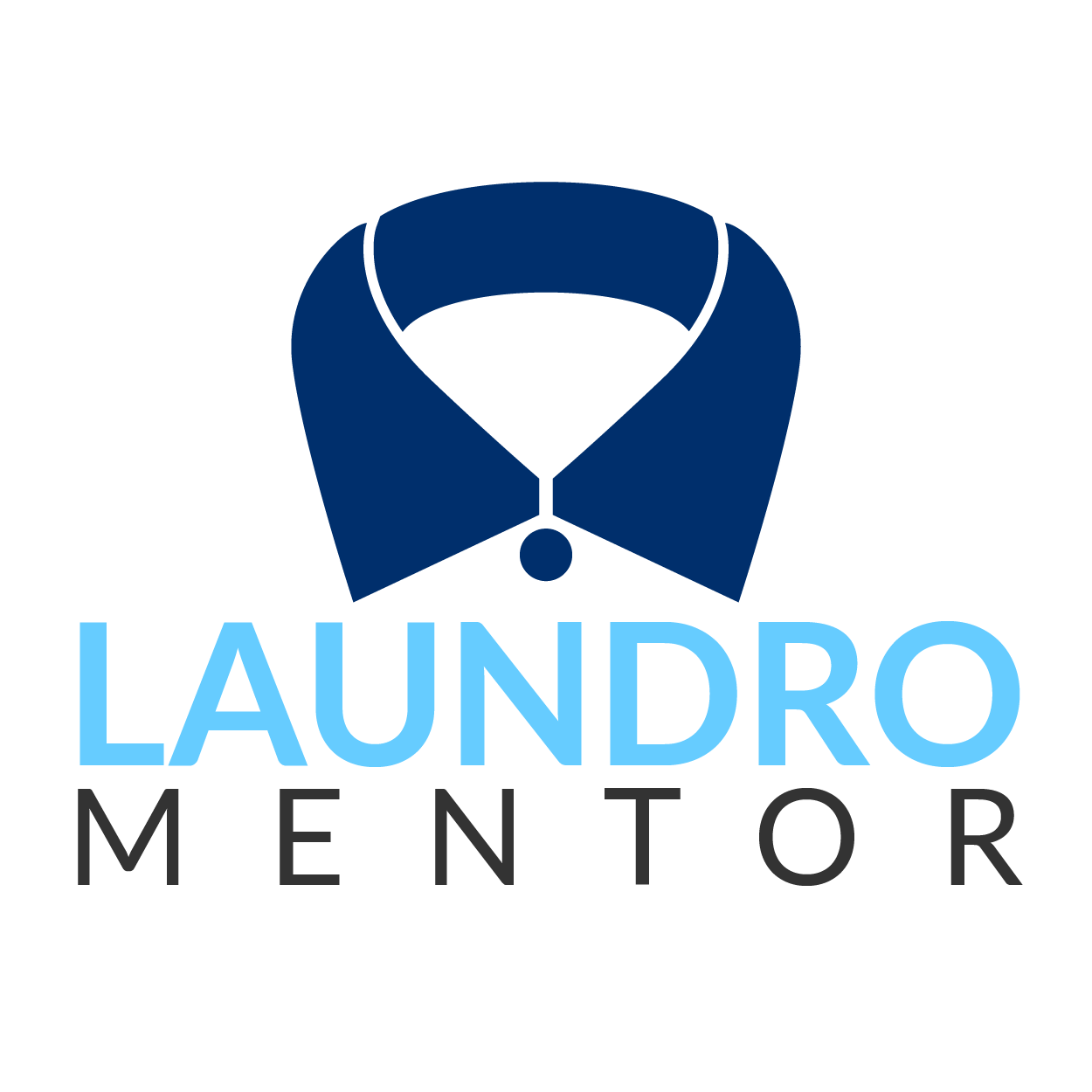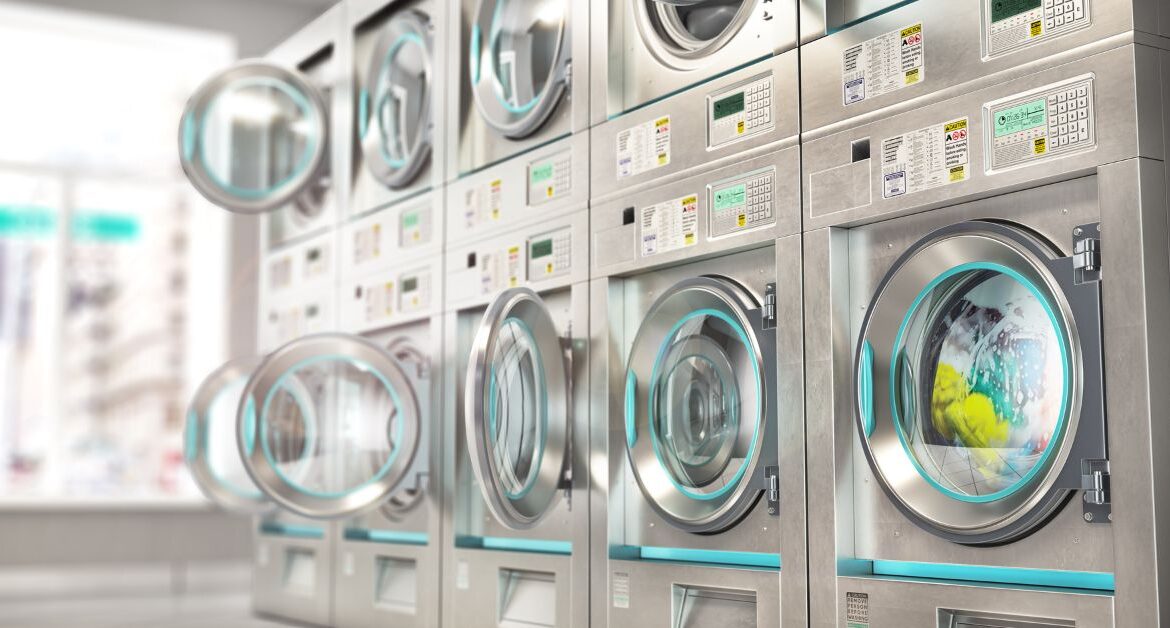Setting up a laundry business is not as simple as renting a space and putting in some washing machines and dryers. If you’re looking to start a laundry business in India, one of the most crucial decisions you can make that will impact efficiency, profitability, and long-term success is the equipment you choose. The machinery you pick, whether it’s your main washers and dryers or the ironing and folding stations, can make a significant difference in your service quality and day-to-day operations.
With small laundry setups popping up all over India, finding machines that balance cost, durability, and performance can be a challenge. In this blog post, we will cover the key points you should consider while choosing your laundry equipment, ensuring your business runs smoothly and profitably.
If you are an entrepreneur planning to set up a laundry business and feeling a little lost with where to begin or what to do, then worry not! LaundroMentor provides a detailed step-by-step course that offers structured guidance, industry insights, and operation tools to help you make the right choices for your business.
Understanding Your Laundry Business Needs
Before purchasing any equipment, it’s crucial to understand the type of laundry business you are operating. Your equipment choices will depend on the following:
- Business size: Are you running a small home-based laundry, a neighborhood store, or a commercial laundry handling hotels and institutions?
- Volume of laundry: Estimate the average number of kilograms of laundry processed per day.
- Type of laundry: Are you handling only clothing, or also linen, uniforms, and specialty items?
- Budget constraints: Your initial investment will determine whether you opt for new, high-end equipment or cost-effective models.
Tip: Accurately defining your business requirements helps prevent overspending on unnecessary machines and ensures you purchase equipment that aligns with your operational needs.
Key Laundry Equipment Every Business Needs
The essential laundry equipment can be categorized based on its function. Understanding these categories will help you make informed decisions.
A. Washing Machines
Washing machines are the backbone of any laundry business. There are several types:
- Semi-Automatic Machines: Budget-friendly, require manual intervention for water filling and draining, ideal for small setups.
- Fully Automatic Top Load Machines: Convenient, easy to operate, suitable for small to medium-volume businesses.
- Fully Automatic Front Load Machines: Energy-efficient, gentle on fabrics, perfect for high-volume and premium laundry services.
Factors to consider: Capacity, energy consumption, water efficiency, wash programs, durability, and brand reliability.
B. Dryers
Efficient drying is crucial to maintain quick turnaround times. Options include:
- Tumble Dryers: Suitable for medium-sized businesses; good for household laundry volumes.
- Industrial Dryers: Large capacity, suitable for hotels, hospitals, or high-volume laundry operations.
Factors to consider: Capacity, drying speed, energy consumption, and ease of use.
C. Ironing and Finishing Equipment
Presentation is key for customer satisfaction. Essential equipment includes:
- Steam irons and pressing machines
- Steam tunnels or continuous ironing machines for high-volume setups
- Folding and packaging tables
Factors to consider: Temperature control, speed, and energy efficiency.
D. Specialty Equipment
Depending on your business focus, you may need additional machines:
- Spot removal and stain treatment units
- Fabric softeners and chemical dispensers
- Automated detergent dosing systems
Factors to Consider When Choosing Laundry Equipment
Selecting the right laundry equipment involves careful evaluation. Consider the following critical factors:
1 Capacity and Load
- Daily volume: Choose machines that match your expected laundry volume. Oversized machines may increase operational costs, while undersized machines can reduce efficiency.
- Flexibility: Some machines allow mixed loads or variable capacity options, which helps during peak seasons.
2 Energy and Water Efficiency
- Laundry operations consume significant water and electricity.
- Choose machines with inverter motors, low water consumption, and energy-efficient drying systems.
- Front-load machines generally use less water than top-load machines.
3 Durability and Build Quality
- Industrial laundry equipment needs to withstand continuous operation.
- Stainless steel drums, robust motors, and high-quality components improve longevity.
4 Ease of Maintenance
- Choose machines with easy access for repairs and cleaning.
- Availability of service centers and spare parts ensures minimal downtime.
5 Technology and Features
Modern laundry equipment comes with smart features:
- Automatic detergent dispensers
- Programmable wash cycles
- Smart sensors for fabric care
- Self-diagnosis systems for troubleshooting
6 Budget and ROI
- Consider both upfront costs and operational costs.
- A higher initial investment in energy-efficient machines may save money in the long term.
Top Laundry Equipment Brands in India
Selecting a reliable brand ensures durability, easy maintenance, and better support. Popular brands include:
LG
- Known for energy-efficient machines, AI technology, and front-load durability
- Smart washing machines and dryers for premium operations
Haier
- Budget-friendly, reliable performance
- Suitable for small-scale operations and semi-automatic machines
Electrolux
- Industrial-grade machines for hotels and large-scale operations
- Durable and high-capacity equipment
Whirlpool
- Focus on energy-efficient and cost-effective solutions for small and medium businesses
Tip: While brand reputation is essential, the machine’s specifications and suitability for your business needs are equally critical.
Setting Up Your Laundry Workflow
The right equipment alone does not guarantee efficiency. Your workflow must complement your machines.
LaundroMentor, for example, emphasizes structured workflow planning for small laundry businesses, ensuring machines are utilized optimally, and operations are smooth.
Suggested Workflow:
- Sorting: Separate laundry by color, fabric type, and wash program requirements.
- Pre-treatment: Spot cleaning and stain removal using specialty equipment.
- Washing: Use machines based on load size and fabric type.
- Drying: Choose the right dryer type to ensure quick turnaround.
- Ironing and Folding: Use steam irons or automatic finishing equipment.
- Quality Check: Ensure all items meet cleanliness and presentation standards.
- Packaging and Delivery: Pack items neatly and efficiently.
LaundroMentor Recommendations for Equipment Selection
When starting a laundry business, LaundroMentor guides entrepreneurs to choose equipment wisely:
- Invest in high-capacity machines if you anticipate high daily loads.
- Prioritize energy-efficient models to reduce operational costs.
- Select machines that are easy to maintain to minimize downtime.
- Use equipment that supports multiple wash programs for different fabrics.
- Choose scalable equipment to accommodate business expansion.
Observation: A carefully planned equipment setup improves workflow, reduces labor costs, and ensures customer satisfaction.
Importance of Staff Training
Even the best laundry equipment needs skilled operators. Proper training ensures efficient usage and prevents damage:
- Machine operation: Understanding wash programs, load limits, and settings
- Preventive maintenance: Cleaning detergent compartments, drum checks, and scheduling service
- Stain removal techniques: Using pre-treatment units and chemicals safely
- Safety protocols: Handling hot steam irons and dryers
Tip: LaundroMentor also provides guidance on training staff for small and medium laundry setups, improving operational efficiency.
Cost Considerations and Budgeting
Budgeting for laundry equipment requires analyzing both initial investment and long-term operating costs.
Initial Investment Breakdown:
- Washing machines: ₹10,000–₹70,000 depending on type and capacity
- Dryers: ₹15,000–₹80,000 based on size and technology
- Ironing and finishing equipment: ₹5,000–₹50,000
- Specialty equipment: ₹5,000–₹30,000
Operating Costs:
- Electricity and water consumption
- Detergents, chemicals, and consumables
- Maintenance and repair costs
Observation: Investing in durable, energy-efficient equipment may increase upfront costs but reduces operational expenses over time.
Practical Tips for Equipment Purchase
- Compare specifications, energy ratings, and warranty terms across brands
- Read reviews and consult industry experts before finalizing
- Purchase machines from authorized dealers for authenticity and support
- Consider leasing or installment options for high-end equipment
- Maintain a record of machine performance to identify early issues
Future-Proofing Your Laundry Business
To ensure long-term sustainability, your equipment choices should accommodate growth:
- Choose scalable machines with larger capacity options
- Opt for modular setups that allow adding new machines as demand increases
- Stay updated on new technologies, such as smart washers and eco-friendly systems
Tip: Entrepreneurs can benefit from LaundroMentor’s guidance on growth planning and technology adoption in small laundry businesses.
Common Mistakes to Avoid When Choosing Laundry Equipment
- Buying based solely on price: Low-cost machines may require frequent repairs.
- Ignoring energy consumption: High utility bills can affect profitability.
- Overlooking service support: Limited access to maintenance can cause downtime.
- Neglecting capacity planning: Undersized machines can slow operations during peak hours.
- Skipping staff training: Poorly trained staff may damage equipment or reduce efficiency.
Choosing Eco-Friendly and Sustainable Laundry Equipment
In today’s world, sustainability is no longer optional, customers and businesses are increasingly conscious of environmental impact. Choosing eco-friendly laundry equipment can reduce utility costs, minimize your carbon footprint, and appeal to environmentally conscious clients.
Key Considerations:
- Energy Efficiency: Look for machines with high energy star ratings or inverter technology to reduce electricity consumption.
- Water Efficiency: Front-load machines typically use less water than top-load models. Machines with recirculation or water-saving programs are ideal.
- Detergent and Chemical Usage: Some modern machines come with automatic dosing systems that minimize chemical wastage.
- Durability: Long-lasting machines reduce replacement frequency, saving resources and money.
- Eco-Friendly Features: Steam cleaning, reduced water cycles, and low-temperature wash options help conserve energy and water.
Also Read: – Shoe laundry business plan
Conclusion
Selecting the right laundry machines and equipment for your business is a pivotal decision that will affect your workflow efficiency, customer satisfaction, and ultimately, your profitability. Before diving into the options, it’s important to evaluate your specific business needs. Consider factors such as the size of your operation, the volume of laundry you process daily, the types of fabrics you handle most frequently, and your budget constraints.
Energy efficiency, machine durability, and ease of maintenance should also be at the forefront of your considerations, as they will impact your long-term operational costs. Planning for scalability is wise, so you can accommodate future growth without a complete overhaul of your equipment. If you’re a small or medium entrepreneur looking for guidance, LaundroMentor is here to help you. We provide structured advice, workflow optimization, and actionable tools to support the setup and operation of a successful laundry business. Our expertise will help you choose the right machines and systems, ensuring you build a sustainable and profitable venture.





